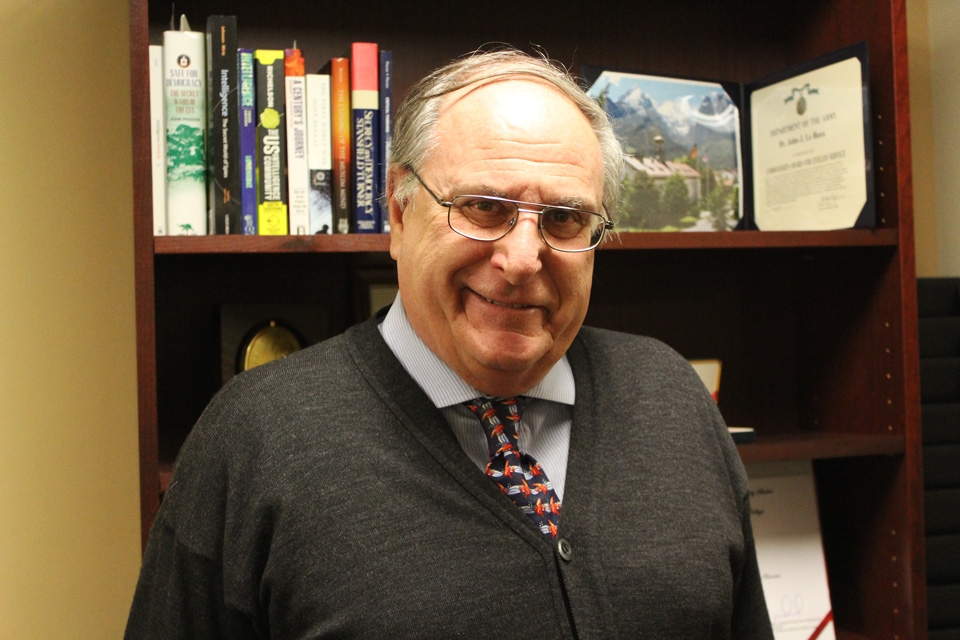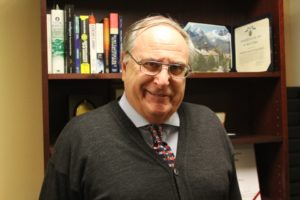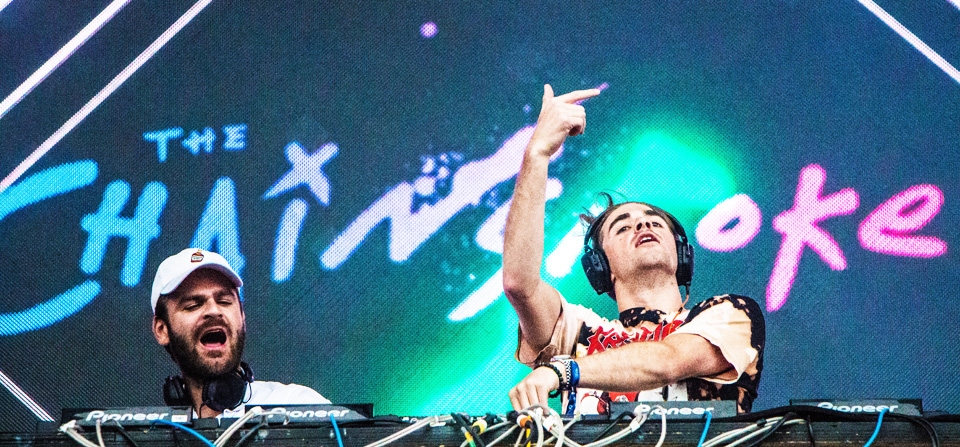
Le Beau, a professor of political science, was a former officer in the CIA.

Le Beau, a professor of political science, was a former officer in the CIA.
Raymond Arke | Asst. News Editor
When John Le Beau was a second lieutenant in the Army stationed in Fort Hood, Texas, he received a mysterious phone call.
“I received a call, ostensibly from the federal government, [who] wanted to talk,” yet they wouldn’t say what branch they were from, Le Beau said. He drove to the federal building in Austin for a meeting, and “it turned out the CIA was looking for potential recruits,” he said.
After nearly three decades in America’s covert forces, Le Beau is now finishing his first semester as a international relations professor at Duquesne.
Le Beau grew up in Northampton, Massachusetts, what he characterized as “a small city … but more or less in the country.”
For his undergraduate degree he studied political science at St. Anselm College in New Hampshire and, under the advisement of the chair of its political science department, attended the University of Massachusetts-Amherst for a doctorate in political science with a focus on foreign policy.
He said he had a long interest in world affairs which led him to study political science in college.
“I have always appreciated the fact we’ve had affairs with the entire world since World War Two,” he said.
Le Beau said that living through the Vietnam War had an impact on what he wanted to do with his life.
“Vietnam was a seminal event in my life and in my generations,” he said. “It enlivened an interest in foreign affairs.”
After graduating with his doctorate, Le Beau entered into the military.
“I went into the 1st Cavalry Division as a young, impressionable second lieutenant in the Armored Corps,” he said.
It was during this time he was first contacted by the CIA, he said.
After a lengthy interview process, Le Beau was accepted to the CIA and was sent with a class of recruits to what he called “The Farm” — officially called Camp Peary — to receive training in spycraft.
From his recruitment class, he “made lifelong friends.” Le Beau noted his fellow classmates were an interesting mix of former armed forces members, police and many more from all walks of life.
Le Beau said training was an intensive period.
“It involved things like how to write what occurs in meetings between [CIA] case officers and an intelligence agent … I also trained on weapons, countersurveillance, dead drops,” and other spycraft he said.
This was the beginning of a 26-year career of utmost secrecy. Le Beau noted that most of those years were spent in a variety of countries overseas.
“I had the opportunity to go to numerous South American countries and to Europe. I spent time in the Middle East,” he said.
Many of his overseas tours were in dangerous locations.
“I was largely in countries experiencing insurgency, terrorism or political violence of some kind,” he said. “It’s not always a kind world.”
Le Beau entered in the position of operational officer, but by the end of his career he had been promoted to Senior Operations Officer, which he describes as mostly “managerial.” Yet, he was pleased that he was able to work overseas until his retirement in mid-2000s.
One of the things he liked the most about working at the agency was the atmosphere.
“I enjoyed it very much. It was a collegial environment,” Le Beau said.
This is even though some of the stations he served in were experiencing pressure.
“The first station I was assigned was under great stress, it was in a civil war area. But, one makes good friends in situations like that,” he said.
After retirement from the CIA, Le Beau entered into academia. He taught at the George C. Marshall European Center for Security Studies in Garmisch, Germany.
After seven years there, he decided to retire to Austria, “much like Maria Von Trapp,” he said. The view from his home was “like ‘The Sound of Music’ … it was very pleasant,” he recalled.
Although Le Beau enjoyed retirement, he decided to take a job at Duquesne.
“There was an opening for a professor with precisely my qualifications,” he said. In the fall semester, he taught three classes focusing on covert action and intelligence organizations in both the U.S. and abroad. Next semester he will also have three classes, one on general foreign policy since World War Two, another with a focus on German foreign policy, and a seminar on intelligence.
Le Beau has been surprised by the enthusiasm of students at Duquesne.
“I’ve been impressed by the level of aptitude of the students … and by our conversations during class,” he said.
He believes that studying intelligence is important.
“Like it or not, it is a fundamental tool of statecraft and diplomacy,” he said. “It’s existed for thousands of years and is even mentioned in the Bible.”
The presidential transition is a good example of the importance of intelligence, Le Beau said.
“One of the first positions the president-elect named was his nominee for director of the CIA,” Le Beau said. “Intelligence is not going away. It’s a critical part of American policy.”
Along with teaching, Le Beau has also dabbled in writing. He has published a nonfiction book titled “A Dangerous Landscape,” which looks at terrorism since the death of Bin Laden.
“It deals with the viewpoints of a variety of countries combatting terrorism,” he said.
Le Beau has additionally authored several novels. He has published “Collision of Evil,” “Collision of Lies,” and “Collision of Centuries.”
During the writing process, Le Beau revisited his old career.
“I learned all about the CIA Publication Review Board,” he said. This is the group that is required to review books published by former employees of the covert organization.
He has greatly enjoyed the experience of being an author.
“It’s great fun to write … writing books becomes easier the more you have behind you,” he said. Le Beau added that he is working on a new book titled “Carinhall.”




